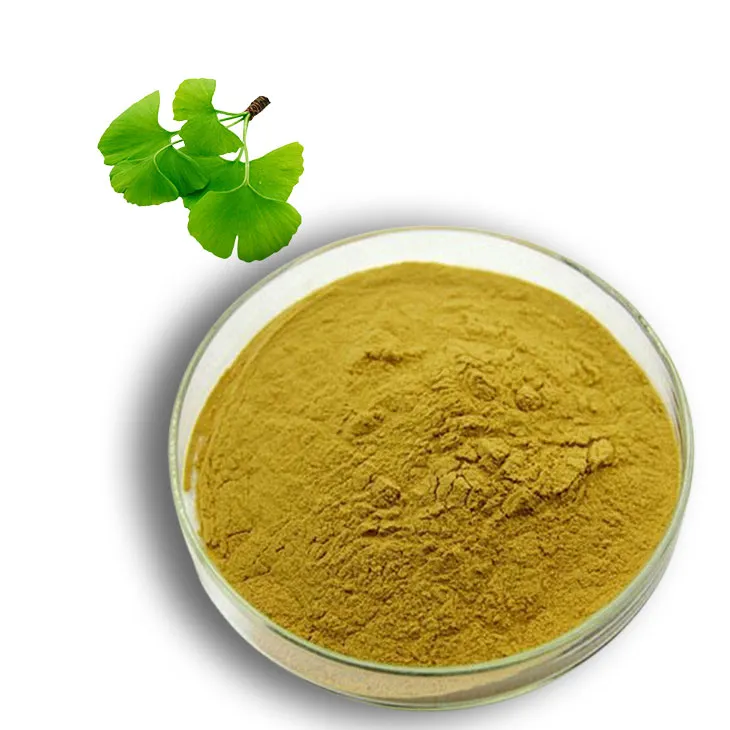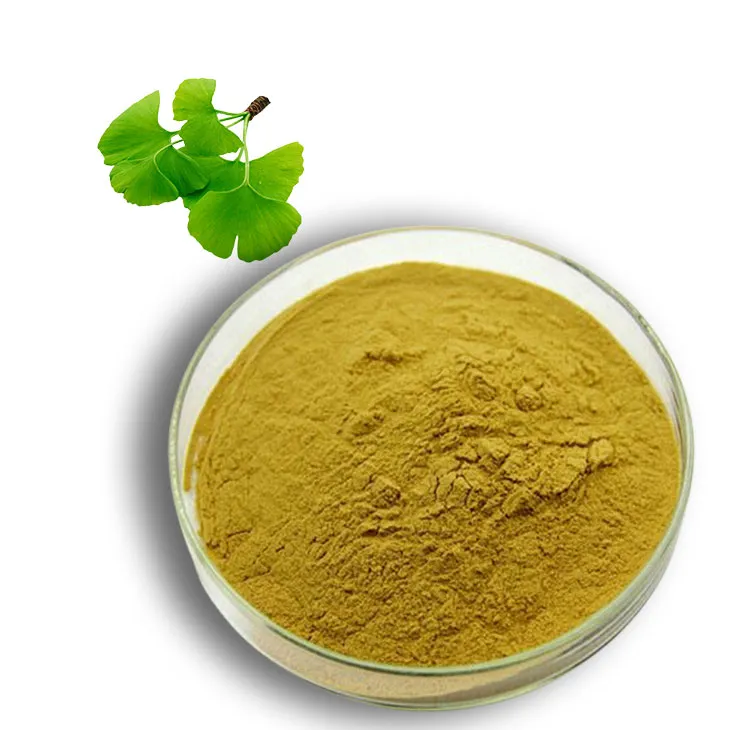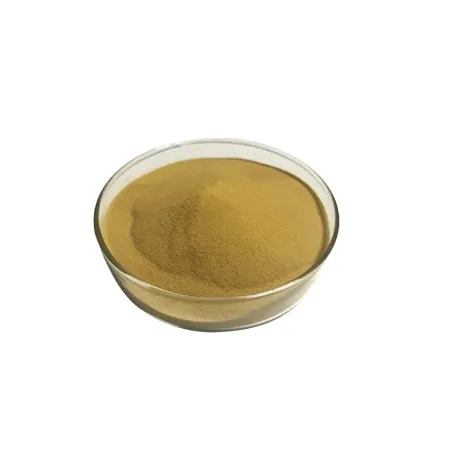- 0086-571-85302990
- sales@greenskybio.com
Does Ginkgo biloba extract have benefits for diabetes? Are these all safe and applicable for diabetic patients?
2024-11-13

1. Introduction
Diabetes mellitus is a chronic metabolic disorder that affects millions of people worldwide. It is characterized by high blood glucose levels due to insufficient insulin production or ineffective insulin action. Managing diabetes involves not only controlling blood sugar levels but also addressing associated complications such as cardiovascular diseases, neuropathy, and retinopathy. In recent years, there has been growing interest in the potential benefits of natural products like Ginkgo biloba extract in diabetes care. Ginkgo biloba is one of the oldest living tree species and has been used in traditional medicine for centuries. The extract of Ginkgo biloba contains various bioactive compounds, such as flavonoids and terpenoids, which are thought to possess antioxidant, anti - inflammatory, and vasodilatory properties. This article will explore how Ginkgo biloba extract may benefit diabetes patients in different aspects, particularly in glycemic control and vascular health, and will also discuss its safety for all diabetic individuals.

2. Potential Benefits of Ginkgo biloba extract in Diabetes
2.1 Glycemic Control
2.1.1 Insulin Sensitivity One of the possible ways Ginkgo biloba extract could impact diabetes is by improving insulin sensitivity. Insulin resistance is a common feature in type 2 diabetes. Some studies suggest that the bioactive compounds in Ginkgo biloba extract may enhance the signaling pathways involved in insulin action. For example, flavonoids in the extract may modulate the activity of kinases and phosphatases that are crucial for insulin receptor function. By improving insulin sensitivity, cells can more effectively take up glucose from the bloodstream, which could lead to better glycemic control.
2.1.2 Glucose Metabolism Ginkgo biloba extract may also influence glucose metabolism at the cellular level. It has been proposed that the extract can affect the activity of enzymes involved in glucose uptake and utilization. For instance, it might enhance the function of glucose transporters, which are responsible for moving glucose into cells. Additionally, some components of the extract could stimulate glycolysis, the process by which cells break down glucose to produce energy. These effects on glucose metabolism could contribute to lower blood glucose levels in diabetic patients.
2.2 Vascular Health
2.2.1 Antioxidant Activity Diabetic patients are often exposed to increased oxidative stress due to high blood glucose levels. Oxidative stress can damage blood vessels and contribute to the development of vascular complications. Ginkgo biloba extract has strong antioxidant properties. The flavonoids and terpenoids in the extract can scavenge free radicals, which are highly reactive molecules that cause oxidative damage. By reducing oxidative stress, Ginkgo biloba extract may help protect the vascular endothelium, the inner lining of blood vessels. A healthy endothelium is essential for proper blood vessel function and can prevent the development of atherosclerosis, a common complication in diabetes.
2.2.2 Vasodilatory Effects Another important aspect of vascular health is blood vessel dilation. Ginkgo biloba extract has been shown to have vasodilatory effects. It can relax the smooth muscle cells in the walls of blood vessels, leading to increased blood flow. In diabetic patients, impaired blood flow is a significant problem, especially in the microvascular beds of the eyes, kidneys, and nerves. Improved blood flow can deliver more oxygen and nutrients to these tissues and help prevent or delay the onset of diabetic complications related to poor perfusion.
2.2.3 Anti - inflammatory Effects Chronic inflammation is associated with diabetes and its complications. Ginkgo biloba extract has anti - inflammatory properties. It can modulate the production of inflammatory cytokines and mediators. By reducing inflammation in the blood vessels and surrounding tissues, the extract may help prevent the progression of atherosclerotic plaques and other vascular problems in diabetic patients.

3. Safety Considerations of Ginkgo biloba extract for Diabetic Patients
3.1 Interaction with Medications Diabetic patients often take multiple medications, such as hypoglycemic drugs and antihypertensive agents. Ginkgo biloba extract may interact with some of these medications. For example, it could potentially increase the risk of bleeding when combined with anticoagulant or antiplatelet drugs, which are commonly prescribed to diabetic patients with cardiovascular problems. It is crucial for diabetic patients to inform their healthcare providers if they are taking Ginkgo biloba extract to avoid any potential adverse drug - drug interactions.
3.2 Allergic Reactions Some individuals may be allergic to Ginkgo biloba extract. Allergic reactions can range from mild skin rashes to more severe anaphylactic shock. Diabetic patients should be cautious when starting Ginkgo biloba extract and monitor for any signs of allergic reactions, such as itching, hives, or difficulty breathing.
3.3 Gastrointestinal Side Effects Ginkgo biloba extract may cause gastrointestinal side effects in some people. These can include nausea, vomiting, diarrhea, or abdominal pain. Diabetic patients with pre - existing gastrointestinal problems may be more susceptible to these side effects. If such side effects occur, the use of the extract may need to be discontinued or adjusted.

4. Is Ginkgo biloba extract Safe for All Diabetic Individuals?
The answer is no. While Ginkgo biloba extract may offer potential benefits for diabetes management, it is not safe for all diabetic patients. As mentioned above, the risk of drug - drug interactions, allergic reactions, and gastrointestinal side effects means that certain individuals may not be suitable candidates for using this extract.
Diabetic patients with bleeding disorders, those taking multiple medications that interact with Ginkgo biloba, and individuals with a history of allergic reactions to plants in the Ginkgoaceae family should avoid using the extract. Additionally, pregnant and lactating diabetic women should also refrain from using Ginkgo biloba extract due to potential risks to the fetus or infant.

5. Conclusion
Ginkgo biloba extract has shown potential benefits in diabetes care, particularly in terms of glycemic control and vascular health. However, its safety is not universal among diabetic patients. Before using Ginkgo biloba extract, diabetic individuals should consult their healthcare providers to assess the potential benefits and risks. Healthcare providers need to consider the patient's overall health status, including their diabetes type, current medications, and any pre - existing medical conditions. With proper evaluation and monitoring, Ginkgo biloba extract may be a useful adjunct in the management of diabetes for some patients, but caution must be exercised to ensure patient safety.
FAQ:
1. What are the potential benefits of Ginkgo biloba extract for diabetes in terms of glycemic control?
Some studies suggest that Ginkgo biloba extract may have certain effects on glycemic control. It might help improve insulin sensitivity. Ginkgo biloba contains bioactive compounds that could potentially influence the body's metabolic processes related to glucose regulation. However, the evidence is not conclusive, and more research is needed to fully understand its role in directly affecting blood sugar levels.
2. How can Ginkgo biloba extract contribute to the vascular health of diabetes patients?
Diabetes is often associated with vascular problems. Ginkgo biloba extract has antioxidant and anti - inflammatory properties. These properties may help reduce oxidative stress and inflammation in blood vessels. By doing so, it could potentially improve endothelial function, which is important for maintaining healthy blood vessels. It may also help in reducing the risk of blood clot formation, which is crucial as diabetes patients are at a higher risk of cardiovascular complications.
3. Is Ginkgo biloba extract safe for all diabetic patients?
No, it is not safe for all diabetic patients. Some people may be allergic to Ginkgo biloba extract. Also, it can interact with certain medications that diabetic patients may be taking, such as blood - thinning medications. Before using Ginkgo biloba extract, diabetic patients should consult their healthcare providers to ensure that it will not cause any adverse effects or interfere with their existing treatment plans.
4. What is the recommended dosage of Ginkgo biloba extract for diabetic patients?
There is no one - size - fits - all recommended dosage for diabetic patients. The appropriate dosage can vary depending on factors such as the patient's overall health, the severity of diabetes, and other individual characteristics. In general, it is advisable to start with a low dose and gradually increase it under the supervision of a healthcare professional. However, more research is needed to establish specific dosage guidelines for diabetic patients.
5. Can Ginkgo biloba extract replace diabetes medications?
No, Ginkgo biloba extract cannot replace diabetes medications. While it may have some potential benefits for diabetes patients, it is not a substitute for the medications prescribed to control blood sugar levels, such as insulin or oral hypoglycemic agents. Diabetes is a complex disease that requires comprehensive management, and medications play a crucial role in maintaining glycemic control.
Related literature
- The Effects of Ginkgo biloba Extract on Diabetes Mellitus: A Review of the Current Evidence"
- "Ginkgo biloba and Diabetes: Potential Benefits and Risks"
- "Role of Ginkgo biloba in Vascular Complications of Diabetes"
- ▶ Hesperidin
- ▶ Citrus Bioflavonoids
- ▶ Plant Extract
- ▶ lycopene
- ▶ Diosmin
- ▶ Grape seed extract
- ▶ Sea buckthorn Juice Powder
- ▶ Fruit Juice Powder
- ▶ Hops Extract
- ▶ Artichoke Extract
- ▶ Mushroom extract
- ▶ Astaxanthin
- ▶ Green Tea Extract
- ▶ Curcumin
- ▶ Horse Chestnut Extract
- ▶ Other Product
- ▶ Boswellia Serrata Extract
- ▶ Resveratrol
- ▶ Marigold Extract
- ▶ Grape Leaf Extract
- ▶ New Product
- ▶ Aminolevulinic acid
- ▶ Cranberry Extract
- ▶ Red Yeast Rice
- ▶ Red Wine Extract
-
Lotus leaf extract
2024-11-13
-
Chasteberry Extract
2024-11-13
-
Passionflower Extract
2024-11-13
-
Saponin Extract
2024-11-13
-
Baicalin
2024-11-13
-
Citrus bioflavonoids
2024-11-13
-
Mulberry Extract
2024-11-13
-
Beetroot Powder
2024-11-13
-
Senna Leaf Extract
2024-11-13
-
Feverfew Extract
2024-11-13





















